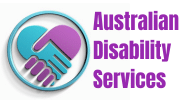NDIS Therapeutic Support empower participants with disabilities to achieve their goals and live a more fulfilling life. These NDIS therapy supports encompass a wide range of services designed to improve your capacity for daily living, communication, social interaction, and overall well-being. Whether you require assistance with mobility, personal care, or managing a specific condition, NDIS therapeutic supports can provide the personalised tools and strategies to thrive.
Ready to explore how NDIS therapy supports can benefit you? Contact us today to discuss your individual needs and navigate the NDIS process. We’ll connect you with qualified providers and help you build a personalised plan for a brighter future.




